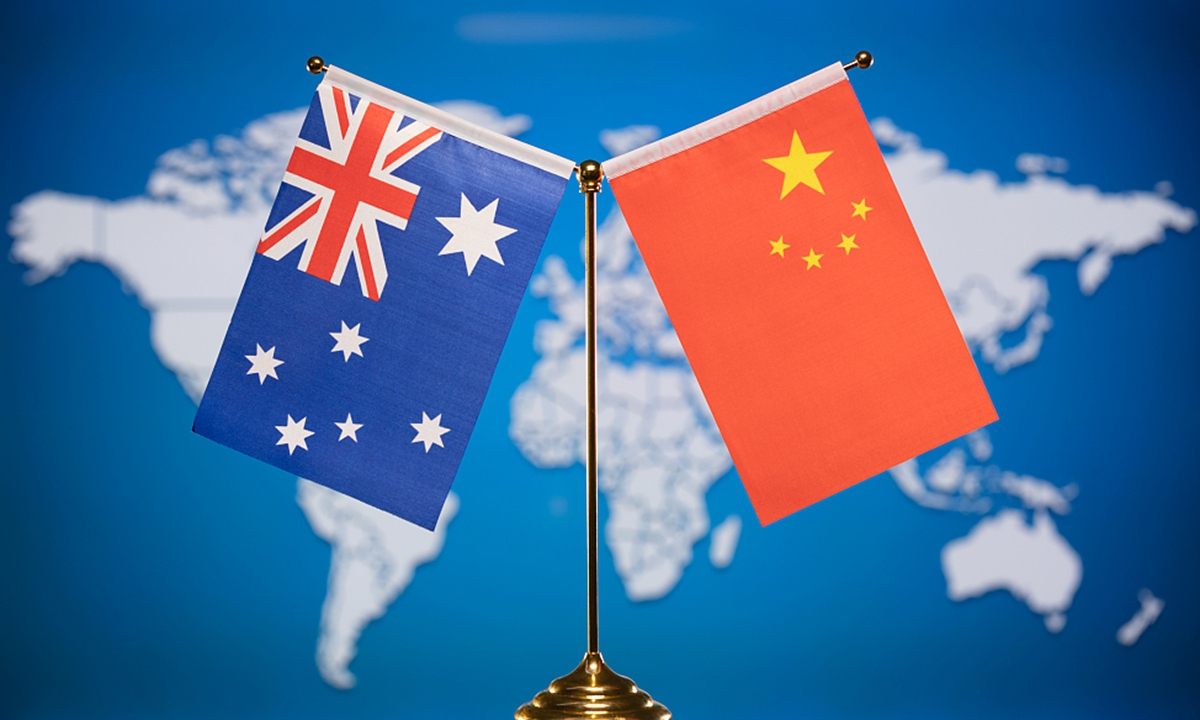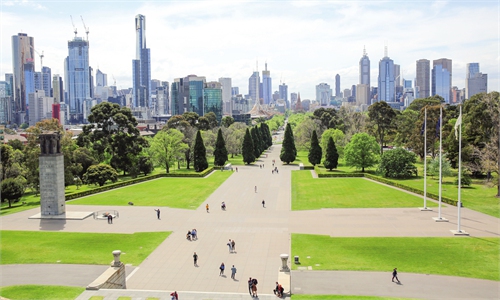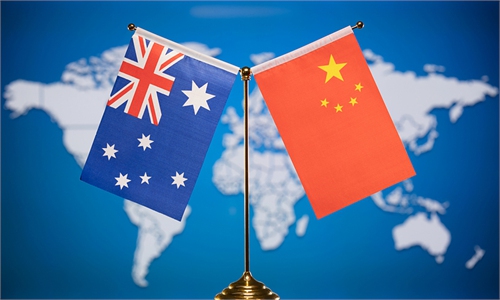China, Australia trade ministers agree to properly handle major concerns
Improvement in economic ties broadly expected

China Australia Photo: VCG
China and Australia agreed to properly handle each other's key trade concerns while conducting professional, pragmatic and candid exchanges on the development of the next stage of bilateral economic relations, according to the video meeting between China's Minister of Commerce Wang Wentao and Australian Trade Minister Don Farrell on Monday, the first such meeting since 2019.The meeting was a follow-up to the important consensus reached by the leaders of the two countries in Bali, Indonesia in November 2022, the first formal meeting between the leaders of the two countries in six years, which injected new impetus into bilateral relations.
Experts said the ministerial meeting on Monday was another substantive step in the normalization of bilateral economic relations for the benefit of both, especially as China's economy quickly rebounds following optimization of COVID response in December.
However, the factors such as meddling by the US still pose potential uncertainties for China-Australia trade relations.
There is a window of opportunity in bilateral economic and trade relations, and the meeting was an important step to get those relations back on track, Wang said.
At the meeting, Wang extended invitation for the Australian trade minister to visit China at a suitable time.
As important economic and trade partners, the economic structures of China and Australia are highly complementary, and bilateral economic and trade cooperation is mutually beneficial and win-win, Wang said at the meeting, urging both sides to work together to accelerate cooperation.
Bilateral relations sank to the lowest ebb in decades due to the hostile stance of the previous Australian government toward China as it closely followed in the US' footsteps, and many companies sought alternatives to fend off disruptions, dealing a blow to Australian exports ranging from coal to wool.
Despite facing a volatile world, China's economy is making a speedy recovery, offering greater opportunities for other countries including Australia.
Speaking with his Australian counterpart, Wang said that a continuously developing and open China will bring more opportunities to countries in the world, including Australia, while urging both sides to meet each other halfway.
China is willing to restart economic and trade exchange mechanism with Australia, and expand cooperation in emerging fields such as curbing climate change and new energy exploration, Wang said.
China is Australia's largest trading partner and an important source of investment, and trade and investment are important cornerstones of bilateral relations, Farrell said at Monday's meeting, welcoming high-quality investment from countries including China.
Experts said that the meeting was an important step toward a full recovery of economic and trade cooperation as the two countries clarified issues and sought solutions that met both of their concerns.
"The meeting marks a substantive step toward a full improvement of bilateral relations, in which economic and trade ties are the major part," Chen Hong, president of the Chinese Association of Australian Studies and director of the Australian Studies Centre at East China Normal University, told the Global Times on Monday.
China is Australia's largest trade partner and destination of imports and exports. As relations improve, trade is on a path to recovery as shown by the resumption of coal trade.
An industry insider surnamed Qiu told the Global Times that it's a good time to resume coal imports from Australia. "In January, the cost, insurance and freight (CIF) of Australian coal stood at 2,450 yuan ($361.3) per ton, while the CIF of coal produced in North China's Shanxi Province was 2,700 yuan per ton," said Qiu.
Australia-based Treasury Wine Estates CEO Tim Ford told the Global Times in December of his strong support for further diplomatic and business engagement across a range of areas where the two countries have complementarities, trade in particular.
While there are rising expectations for a full recovery of bilateral trade relations in 2023, uncertainties remain that may hinder progress, especially from the US.
The tough US stance against Chinese companies such as Huawei overshadowed bilateral relations under Australia's previous Morrison government.
The US factor has been and remains a potential stumbling block in relations between China and Australia, Chen said, noting that Australia should maintain a balance in handling relations with major powers for the benefit of its own interests.


